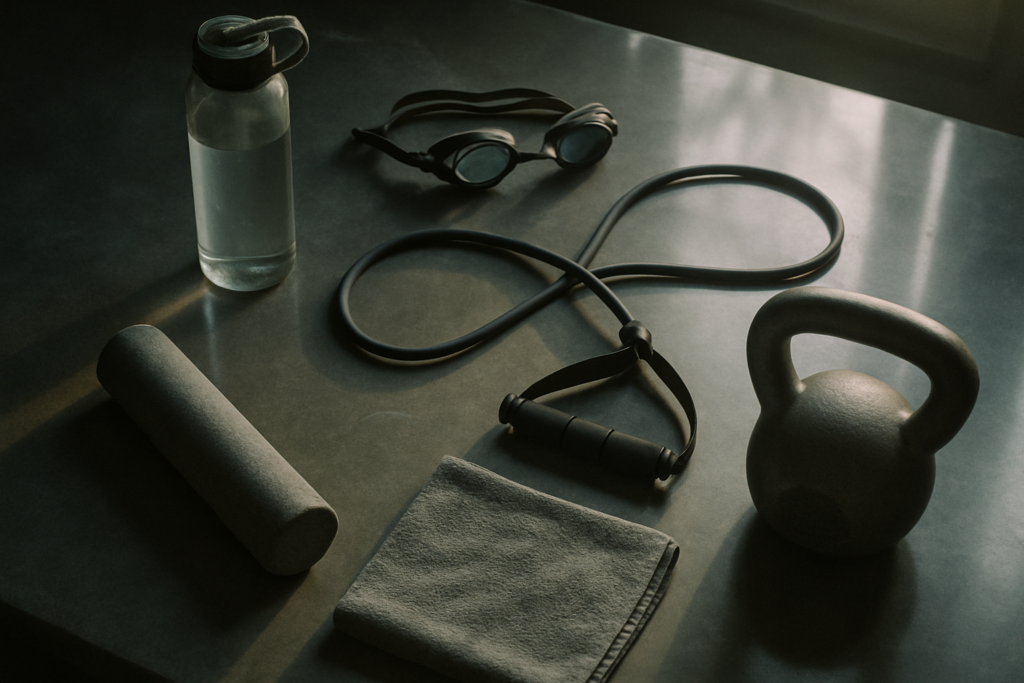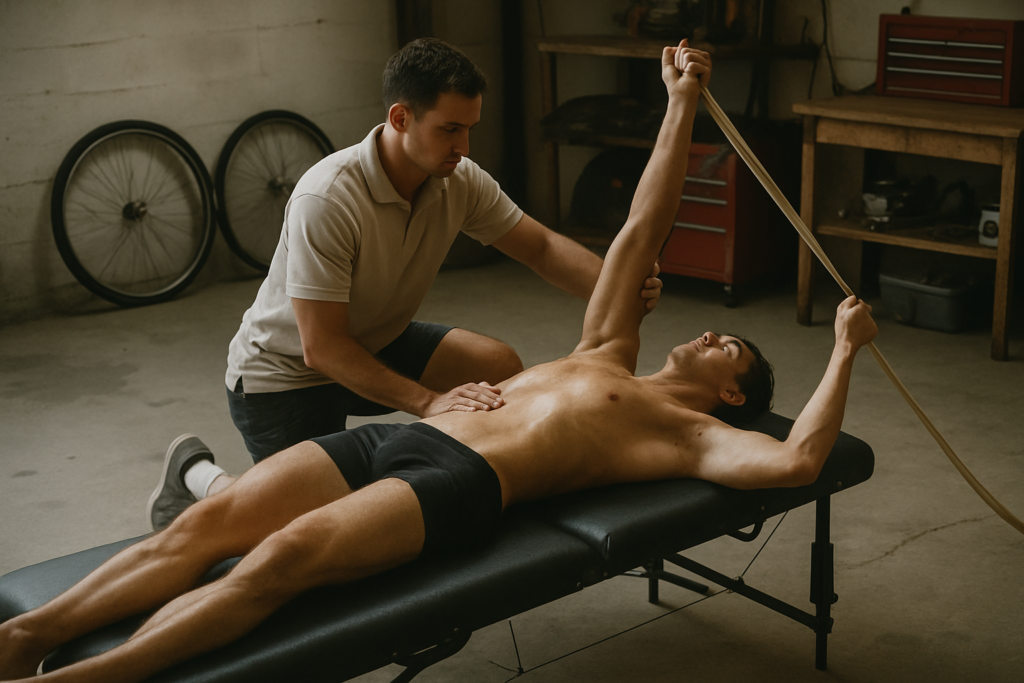Women must do significantly less sport to achieve the same health benefits as men. This is the conclusion of a US-Chinese study involving more than 400,000 people from 1997 to 2019.
Men achieved a maximum reduction in the risk of death if they exercised for around 300 minutes per week. Women only needed 140 minutes, as the group led by Martha Gulati from Cedars-Sinai Medical Center in Los Angeles (US state of California) and Hongwei Ji from Tsinghua University in Beijing wrote in the Journal of the American College of Cardiology (JACC). However, there are differences in how sports are played and their impacts. You can be sure that the performances in online betting are pretty much the same.
20-year investigation period for sports study
“Women lag behind men when it comes to meaningful exercise,” Gulati is quoted as saying in a statement from her institution. She and her colleagues wanted to find out what impact sport has on health and used a nationwide database, the National Health Interview Survey, to do so.
The 412,413 adults selected, 55 percent of whom were women, provided information on the type and extent of their weekly sporting activity in a questionnaire as part of the survey. During the more than 20-year study period, almost 40,000 participants died, including 11,670 from cardiovascular diseases.
The researchers have now determined how much the risk of death was reduced through sport. Regular exercise during leisure time reduced this risk by an average of 15 percent in men and 24 percent in women – in each case compared to people who did not exercise.
Enormous effects for women in the prevention of cardiovascular diseases
About cardiovascular diseases, the reduction through sport was 14 percent for men and as much as 36 percent for women. The difference was similarly significant for sports exercises that strengthen the muscles: regular strength training reduced the risk of death from cardiovascular disease by 11 percent in men and 30 percent in women.
When men exercised very intensively for 110 minutes per week, their risk of death fell by 19 percent. Women achieved this value after just 57 minutes of intensive training. “The beauty of this study is that women can get more out of every minute of moderate to intense activity than men,” emphasizes Gulati. She and her team hope the study results will encourage more women to engage in physical activity, as the time required for a positive health effect is not particularly significant.
“Differentiate sports recommendations according to gender and age.”
The result is no surprise for Kuno Hottenrott from Martin Luther University Halle-Wittenberg. “I have long advocated differentiating exercise recommendations in health guidelines more according to gender and age,” emphasizes the sports scientist.
In 2008, he developed a formula for calculating the ideal heart rate for endurance sports that considered the differences between women and men. This is because, on average, women have significantly lower muscle mass, a lower metabolic rate, smaller body measurements, and a lower blood volume than men, explains Hottenrott.
“Life’s Essential 8″: Eight rules to stay young longer
“Life’s Essential 8” – according to US researchers, those who live by these eight rules undergo a rejuvenation cure. “They show us how following healthy lifestyle habits can help us live longer,” they say.
Eight measures to help you stay young for longer. At least that’s according to US researchers who have published the “Life’s Essential 8”. The American Heart Association (AHA) now recommends these tips for better cardiovascular health.
These are the “Life’s Essential 8”
They are designed to reduce the risk – for example, of heart disease or stroke – and are as follows:
- Eat healthier
- Be more physically active
- Don’t smoke
- Make sure you get a good night’s sleep
- Watch your body weight
- Control your cholesterol level
- Watch your blood sugar
- Control your blood pressure
According to the AHA, these rules can slow the aging process by up to six years. Data from over 6500 adults, who were, on average, 47 years old, were analyzed. Social and economic factors were taken into account. The researchers found that the people with the best cardiovascular health were biologically around six years younger than their actual age.
The test subjects’ metabolism, organ functions, and inflammation levels were examined.
The findings underline a link between heart health and biological aging, as Donald Lloyd-Jones, chairman of the writing group for “Life’s Essential 8,” explains to the British Guardian: “These results help us to understand the relationship between actual and biological age. They also show us how following healthy lifestyle habits can help us live longer.”
Eat mainly whole foods, fruit, vegetables, nuts, and seeds. Use primarily olive oil. Regarding meat, lean meat or fish is recommended; the consumption of vegetable proteins is mentioned before animal proteins. You should also avoid sugary drinks, alcohol, and highly processed foods, including trans fatty acids. People who prepare their food can keep track of the composition of their meals more easily.
Adults should engage in two and a half hours of moderate or 75 minutes of strenuous weekly exercise. Strength training twice a week is remarkably advisable. Important: Any exercise helps your health.
Smoking shortens life expectancy. That’s why you shouldn’t start in the first place – or quit. “Within a year of quitting, the risk of heart disease is halved,” writes the AHA. The experts also advise against vaping or passive smoking.


 is a passionate advocate for fitness and healthy living, blending her expertise in swimming with a dedication to overall wellness. With years of experience both in and out of the pool, she offers valuable insights on effective workout routines, nutrition, and lifestyle habits that support peak performance and vitality. Rosamie’s writing is characterized by its practical advice, encouraging readers to adopt sustainable habits for long-term health and fitness. She frequently shares her personal journey and success stories to motivate others, and her articles often include actionable tips that readers can easily incorporate into their daily lives. By focusing on a holistic approach to fitness, Rosamie aims to help individuals not only achieve their athletic goals but also cultivate a balanced and fulfilling lifestyle.
is a passionate advocate for fitness and healthy living, blending her expertise in swimming with a dedication to overall wellness. With years of experience both in and out of the pool, she offers valuable insights on effective workout routines, nutrition, and lifestyle habits that support peak performance and vitality. Rosamie’s writing is characterized by its practical advice, encouraging readers to adopt sustainable habits for long-term health and fitness. She frequently shares her personal journey and success stories to motivate others, and her articles often include actionable tips that readers can easily incorporate into their daily lives. By focusing on a holistic approach to fitness, Rosamie aims to help individuals not only achieve their athletic goals but also cultivate a balanced and fulfilling lifestyle.
